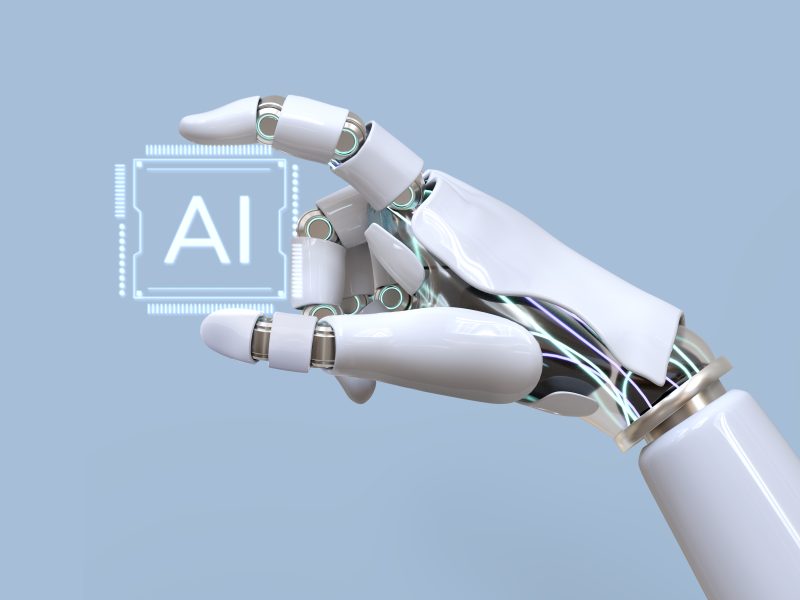
Artificial Intelligence (AI) is changing the world — and Africa is no exception. As the continent faces complex social and economic challenges, AI presents a once-in-a-generation opportunity to overcome developmental hurdles and unlock innovative solutions tailored to Africa’s unique contexts.
From enhancing education to transforming healthcare delivery and driving inclusive economic growth, AI is steadily carving out its space on the continent. But as with all powerful tools, it comes with its own challenges. This article explores the opportunities, challenges, and the road ahead for AI in Africa, focusing on three crucial sectors: education, healthcare, and the economy.
1. AI in Education: Bridging the Knowledge Gap
Opportunities:
- Personalized Learning: AI-powered platforms like Ulesson and Gradely are already providing personalized, data-driven learning experiences that adapt to students’ pace and learning style.
- Teacher Support: AI can assist overburdened teachers with grading, content generation, and tracking learning outcomes—especially in under-resourced schools.
- Access to Global Resources: AI breaks the barrier of physical infrastructure, connecting students in rural areas to world-class content and virtual tutors.
Challenges:
- Digital Divide: Many regions still lack basic infrastructure like reliable internet and electricity.
- Low AI Literacy: Many educators are not trained to use AI tools effectively or critically evaluate AI-generated content.
- Language Limitations: AI models often lack support for local African languages, which affects inclusivity.
2. AI in Healthcare: Saving Lives at Scale
Opportunities:
- Diagnosis and Early Detection: AI tools can analyze X-rays, pathology slides, and patient data to detect diseases like tuberculosis, malaria, and cervical cancer early and accurately.
- Telemedicine and Chatbots: Some tools like Reliance Health app are expanding access to health advice via smartphones, reducing reliance on overcrowded hospitals.
- Drug Development and Genomic Research: AI is helping African scientists analyze genetic data to develop targeted treatments for diseases prevalent on the continent.
Challenges:
- Data Privacy & Ethics: Medical data is sensitive, and Africa needs strong governance frameworks to protect user information.
- Lack of Quality Data: Inconsistent health records and fragmented data systems affect the accuracy and reliability of AI models.
- Limited Infrastructure: Many health centers still operate manually, limiting the scope of AI integration.
3. AI in the Economy: Driving Innovation and Entrepreneurship
Opportunities:
- Business Automation: Small businesses and startups are using AI for tasks like inventory management, customer service, and marketing automation, improving efficiency and scalability.
- Financial Inclusion: AI-driven fintech platforms like Opay, Palmpay, FairMoney, and Kuda are making credit and financial services accessible to the unbanked population using alternative data like mobile phone usage.
- Agricultural Intelligence: Startups like Aerobotics, Zenvus, and Hello Tractor use AI for crop health monitoring, soil analysis, and smart mechanization—boosting productivity and food security.
Challenges:
- Job Displacement Concerns: There’s anxiety around AI replacing low-skilled jobs, especially in manufacturing, logistics, and admin.
- Bias and Fairness: AI systems trained on non-African data can reproduce bias, leading to inaccurate predictions or unfair outcomes.
- Low AI Investment: Despite the hype, actual investment in AI research, infrastructure, and startups in Africa remains limited.
The Road Ahead: How Africa Can Lead, Not Just Follow
Africa doesn’t have to play catch-up. With a young population, rising digital adoption, and an emerging startup ecosystem, the continent has all the ingredients to create homegrown AI solutions for African problems.
To maximize the benefits of AI, Africa must:
- Invest in Talent Development: Programs like AI for Africa and Data Science Nigeria are helping train the next generation of AI professionals.
- Create Strong Policy Frameworks: Governments must invest in AI policies that support innovation, protect data, and promote responsible use.
- Encourage Local Innovation: AI tools must be designed with and for African users, taking into account cultural, linguistic, and economic contexts.
- Promote Public-Private Collaboration: Governments, tech companies, and academic institutions need to work together to fund and deploy scalable AI initiatives.
Africa’s AI Moment is Now!
AI is not a luxury for Africa — it’s a necessity. When implemented with purpose and equity, artificial intelligence has the power to transform classrooms, clinics, and businesses across the continent. The opportunities are real, the challenges are solvable, and the future is bright.
If you want to understand how AI can impact your field, irrespective of what field you play in, it’s time to learn the language of the future.
Ready to be part of Africa’s AI revolution?
Join the AI for Africa course by Verticul and DecisionSpaak. Learn how to use AI tools to work smarter, solve real-world problems, and boost your career or business.
Get started here: goverticul.io/aiforafrica



